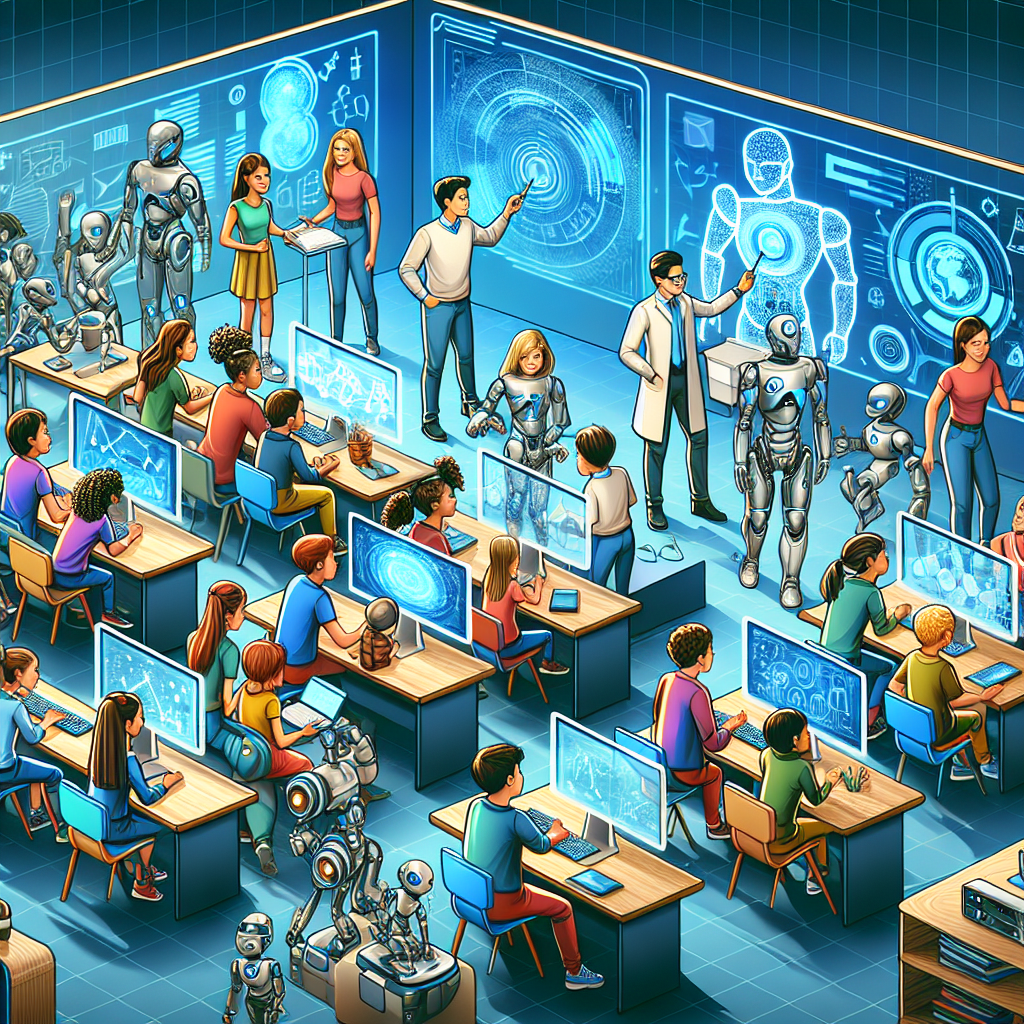Embracing AI in Education Through Sci-Fi
In 1995, I sat wide-eyed in front of a VHS copy of Star Trek: The Next Generation, mesmerized as the android Data effortlessly calculated quantum physics problems and recited Shakespeare with equal ease. What struck me wasn’t just the fictional tech wizardry, but the synergy between human curiosity and machine intelligence—a vision that has quietly guided me as an educator. Years later, when AI made its way into my classroom, I didn’t panic. I remembered Data. And I leaned in.
From Fiction to Function: How Sci-Fi Shapes Educational Mindsets
Embracing AI in education through sci-fi isn’t just a whimsical idea—it’s a powerful mindset shift. Science fiction has always served as a mirror and a map: it reflects our fears about technology while also charting imaginative futures. From Isaac Asimov’s “I, Robot” to more recent stories like “Her” or “The Matrix,” sci-fi has raised important ethical questions while painting awe-inspiring visuals of what AI might become.
As educators, many of us were introduced to artificial intelligence not via scholarly journals but through the pages and screens of science fiction. It’s no wonder that when AI tools—like ChatGPT or adaptive learning platforms—began entering classrooms, those of us steeped in sci-fi lore didn’t just see robots; we saw potential.
AI as a Co-Pilot in Learning
AI is not replacing teachers; it’s augmenting them. Much like Data assisted Captain Picard, today’s AI technology helps educators optimize their time and personalize learning. Here’s how I’ve embraced AI in my classroom, inspired by the genre that got me seeing its promise early:
- Personalized Support: AI-driven tools analyze student performance and offer customized paths to mastery, helping me meet learners where they are.
- Grading Automation: Smart grading platforms reduce the hours spent on assessment, freeing me to engage more meaningfully with students.
- Adaptive Feedback: AI provides real-time writing and math feedback, empowering students as active participants in their progress.
Bridging Fiction and Future Readiness
The best science fiction doesn’t just excite—it educates. By revisiting sci-fi classics in our curriculum, we can inspire students to ask critical questions about AI’s role in society. Discussions about ethics, privacy, and equity become more engaging when students analyze the philosophical dilemmas of a movie like Ex Machina or a novel like Ender’s Game.
Moreover, these conversations help students build skills they’ll need regardless of the future path they choose: critical thinking, ethical reasoning, and tech fluency.
Final Thoughts: Turning Fiction into Foundation
AI in education isn’t a dystopia unless we let it be. By grounding our use of AI in human-centered values and drawing inspiration from sci-fi, we can chart a future where machines extend both our capabilities and our compassion. So, the next time someone questions AI in the classroom, just tell them: “I learned it from Starfleet.”
For more insight into how educators are integrating AI with forward-thinking approaches, check out this inspiring perspective from EdSurge’s feature on sci-fi and AI in classrooms.

